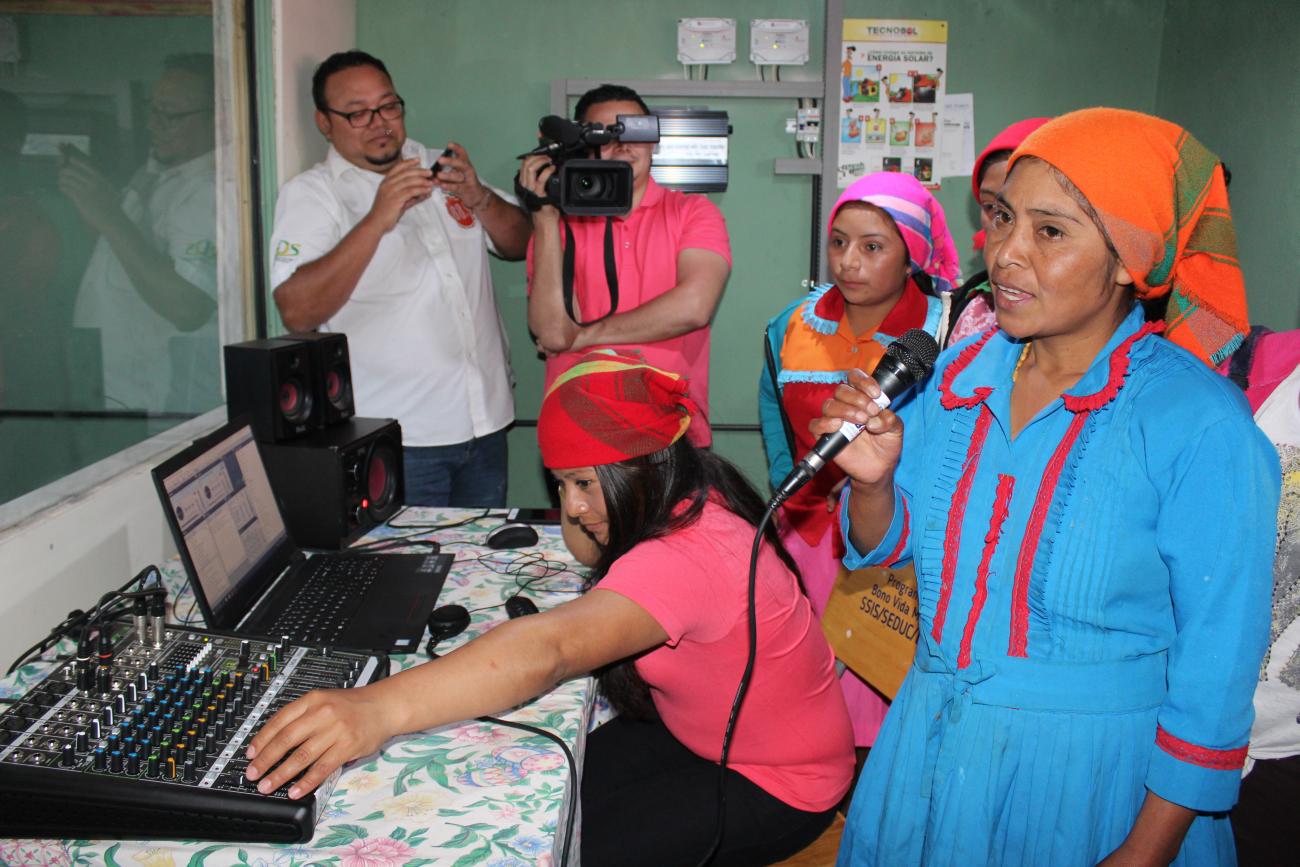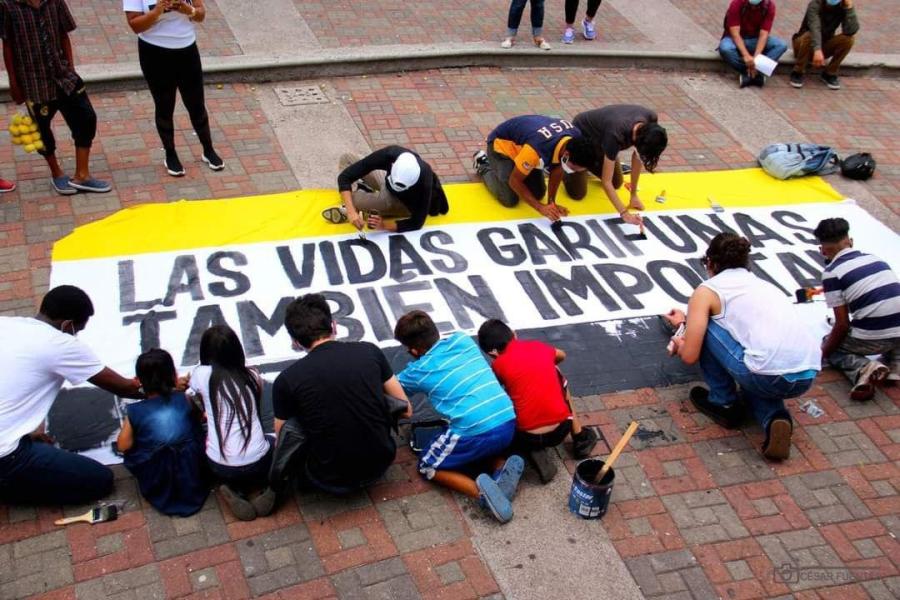
Without electricity or a telephone signal in the vicinity, a community radio station was almost an impossible dream for the Lenca people of Azacualpa, an Indigenous community of Yamaranguila in Intibucá, Honduras, who believed that as an impoverished community, no one would be interested in assisting them in setting up a radio station. This reality changed on June 30, 2017, when the people of Azacualpa celebrated the inauguration of their own radio station, Radio Azacualpa, with the support of Cultural Survival's Community Media Grants Project and with the collaboration of local partners such as the Network of Sustainable Development and the Indigenous Coordinator of the People's Power of Honduras (CINPH). CINPH is led by Olivia Zúñiga, daughter of the late Berta Cáceres who also motivated those living in the Azacualpa Valley to form a group of women for their development.
"For us it is a dream come true, we really needed this radio. We do not have telephone reception. To call together women for meetings of our cooperative, we had to walk long distances and that took a lot of time. Now that we have the radio station in the school, where the meetings of the Azacualpa valley hold, the communication it is easier. However, even though is a women-run radio station, we must not forget that we all have opportunities by using this media. We will educate ourselves through it and each member of the community will be able to express themselves through it,” said Maria Santos, leader of the Azacualpa community who after three workshops of locution and radio broadcasting lost her fear of the microphone and is now sharing these words with the public.
We asked the men if they were bothered that the the radio has the slogan "The Voice of the Women". Many responded that it was not a problem, and that they were willing to support the radio because they felt it came from the community. They were happy to support the women in this initiative to overcome gender barriers, since one of the problems faced by women are their insecurities due to the lack of opportunities locally. The women of Azacualpa, like many Indigenous women have a double work day--after working in the fields with their husbands, they have to attend to domestic work and take care of their families as mothers and wives.
"One of our goals as a radio station is to achieve recognition of our rights as women and to achieve equality," said Santos.


